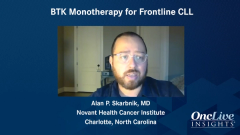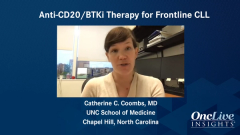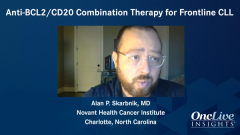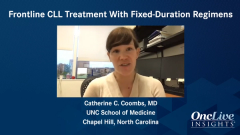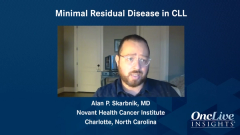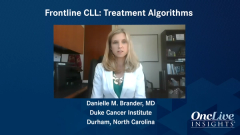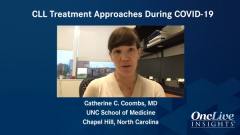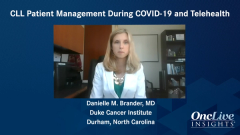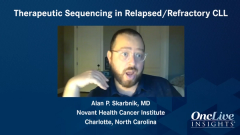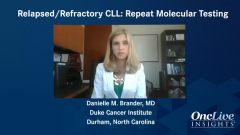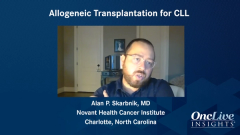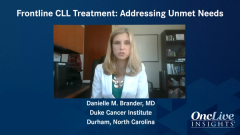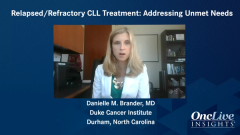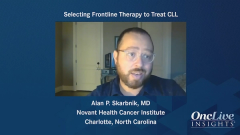
Relapsed/Refractory CLL Treatment: Addressing Unmet Needs
Episodes in this series

Danielle M. Brander, MD: Patients who do develop resistance to a BTK [Bruton tyrosine kinase] inhibitor, or patients who develop intolerance to one of these novel therapeutics, is something to discuss. For patients who develop resistance to a BTK inhibitor, studies with ibrutinib as well as with acalabrutinib identify that about 80% of the time, these patients have resistance mutations in BTK itself or downstream PLC-gamma2. Because of the similar mechanism of action and binding of ibrutinib, acalabrutinib, and zanubrutinib, it wouldn’t make sense to switch from ibrutinib resistance to acalabrutinib.
There are now several next-generation noncovalent BTK inhibitors that have different mechanisms of binding to BTK and can get around those resistance mutations. A couple of these noncovalent BTK inhibitors are ARQ 531 and LOXO-305. We will hear more data at ASH [the American Society of Hematology annual meeting] about noncovalent BTK inhibitors and their role in CLL [chronic lymphocytic leukemia] and SLL [small lymphocytic leukemia]. One of those studies for LOXO-305, in which the abstract will be presented, will include almost 100 patients with CLL or SLL, the overwhelming majority of whom had previously been exposed to a BTK inhibitor. We will see what the safety and the efficacy look like in these patients who have been already exposed to a BTK inhibitor, especially for those who have been exposed and are resistant to prior BTK inhibitors, because these next generations of BTK inhibitors could overcome that either in monotherapy or in combination.
In terms of novel cellular therapies and the role of transplant for patients with CLL, one of the important points for transplant is that the patients have to be in a good response or certainly not with any kind of progressive disease to be able to benefit from that.
In the past couple of years, we’ve heard about CAR [chimeric antigen receptor] T-cell therapies for patients with CLL and SLL. At ASH we’ll hear about a cohort of patients who are receiving ibrutinib as they receive the CAR T with a product called liso-cel [lisocabtagene maraleucel]. It looks like the safety profile in terms of initial adverse effects is similar, and the hope is that it also helps in terms of responses in other CAR T-specific adverse effects, such as cytokine release syndrome or neurotoxicity.
Another thing in terms of unmet needs is for our patients with CLL or SLL who develop Richter transformation. This is usually defined as CLL that evolves into a more aggressive lymphoma, most commonly a diffuse large B-cell lymphoma. The outcomes for patients who develop Richter transformation, historically, are very poor. In the era of novel agents, patients who develop Richter transformation while receiving a novel agent, such as ibrutinib, acalabrutinib, and venetoclax, potentially have even more inferior outcomes. This is an important area to target for patients, and there are 2 ways. One is understanding what causes Richter to try to prevent it, and secondly, if it does happen, advocating for clinical trials that look at these patients and offer options.
In terms of trying to prevent it, we still need to look at who our highest-risk patients are and how do we change our approach to these patients. Do these patients require earlier intervention before the typical case? If patients have TP53 aberrations or high-risk CLL IPI [International Prognostic Index] scores, how can we, in clinical trials, look at whether treating these patients earlier maybe prevents things down the road, such as resistance or Richter transformation, which is so difficult to treat once it occurs? There will be a SWOG Cancer Research Network-like cooperative group study looking at the role of early intervention in patients with high-risk CLL or SLL. So we should be looking to that and thinking how that can help our highest-risk patients potentially from the very start.
Transcript Edited for Clarity


